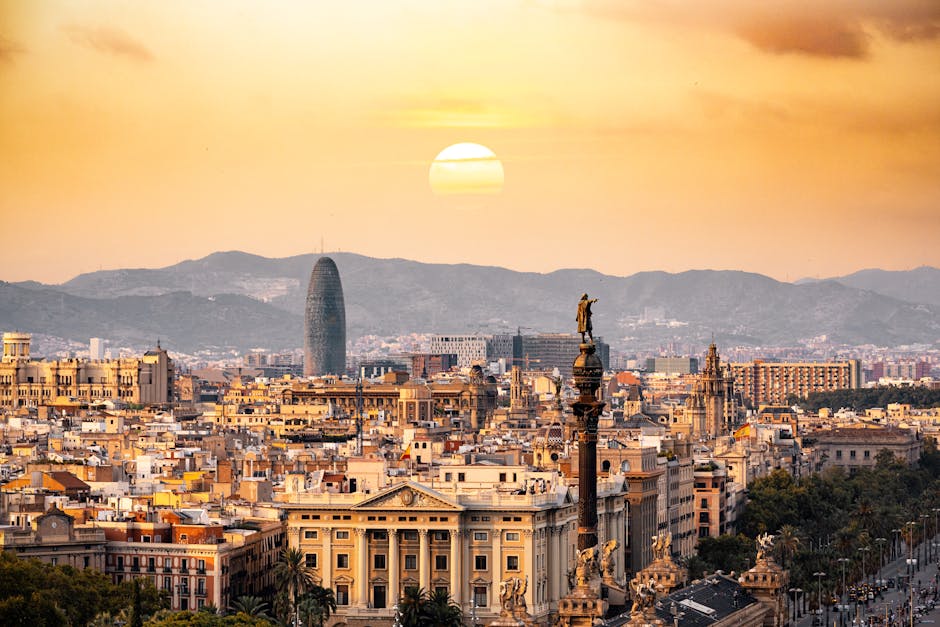Travel trends are rapidly transforming the way we discover the world and write our stories. As we move through 2025, travelers are seeking more than just destinations—they crave meaningful, responsible, and innovative adventures. At Journey Atlas, we explore the latest travel trends that are shaping the journeys of tomorrow, empowering you to make informed choices and create unforgettable memories.
Sustainable and Regenerative Travel: Leaving a Positive Impact

One of the most prominent travel trends in 2025 is the rise of sustainable and regenerative travel. Today’s explorers are no longer satisfied with simply minimizing their environmental footprint; they want to leave destinations better than they found them. This shift is driven by increased awareness of climate change, the environmental impact of tourism, and the urgent need for responsible travel practices.
Travelers are seeking out eco-friendly accommodations that utilize solar panels, implement waste reduction strategies, and invest in water-saving technologies. Many properties now proudly display their sustainability credentials, making it easier for guests to choose responsible options. Eco-certification programs like Green Key, EarthCheck, and Green Globe are gaining traction, offering travelers peace of mind and encouraging more businesses to adopt green practices.
Regenerative travel takes things a step further. It’s about actively participating in conservation projects, supporting local communities, and engaging in activities that restore and rejuvenate natural and cultural environments. Whether it’s volunteering for reforestation efforts, choosing carbon-neutral travel packages, or enjoying zero-kilometer meals sourced from local farms, travelers are making conscious decisions that benefit both the planet and its people.
Destinations are also responding by capping visitor numbers to fragile sites, encouraging off-season travel, and promoting experiences that foster genuine connections with local culture. The result is a more mindful, enriching, and sustainable way to explore the world—one that ensures future generations can continue to discover its wonders.
Tech-Enhanced Travel: The Digital Revolution on the Road

The integration of technology into travel is another trend that’s redefining the modern adventure. In 2025, travelers expect seamless, personalized, and secure journeys, thanks to advancements in artificial intelligence (AI), augmented reality (AR), and smart devices.
AI-powered platforms now curate tailored itineraries based on your preferences, travel history, and even real-time events. These digital assistants can suggest hidden gems, local eateries, and unique experiences, taking the guesswork out of planning. Augmented reality brings landmarks and museums to life, overlaying historical insights or interactive guides as you explore.
Smart luggage equipped with GPS tracking, biometric locks, and built-in charging ports has become a staple for tech-savvy globetrotters. Airports and hotels are adopting biometric systems for faster, contactless check-ins and security, reducing wait times and enhancing safety. Virtual tours and immersive online experiences allow travelers to preview destinations or even explore them remotely, making travel accessible to all.
As technology continues to evolve, it’s not just about convenience—it’s about enriching the journey. Digital connectivity enables travelers to share stories in real-time, connect with local hosts, and even access translation tools that break down language barriers. The future of travel is smarter, more inclusive, and infinitely more exciting.
Meaningful Experiences: The Rise of Purposeful Journeys

Photo by Aleksandar Pasaric on Pexels
Another defining travel trend is the desire for meaningful experiences. Modern explorers are looking beyond traditional sightseeing, seeking journeys that offer personal growth, cultural immersion, and authentic connections. This shift is particularly evident among younger generations, who prioritize experiences over possessions and value travel as a way to enrich their lives.
Wellness retreats, creative workshops, and volunteer programs are flourishing as travelers look for ways to nourish their minds, bodies, and souls. Culinary tours that celebrate local flavors, hands-on craft sessions with artisans, and homestays that offer a window into daily life are all gaining popularity. These experiences foster empathy, understanding, and a deeper appreciation for the world’s diversity.
Travelers are also increasingly interested in supporting initiatives that benefit local communities. Whether it’s booking tours with indigenous guides, shopping at markets run by women’s cooperatives, or participating in conservation efforts, purposeful journeys are becoming the norm. The result is a more ethical, impactful, and transformative approach to travel.
Ultimately, meaningful travel is about writing your own story—one that is rich with discovery, connection, and a sense of purpose. It’s a trend that not only benefits the traveler but also the places and people they encounter along the way.
Flexible and Personalized Adventures: Tailoring Travel to You

Photo by Elias de Carvalho on Pexels
Flexibility and personalization are at the heart of travel trends in 2025. The modern traveler wants control over their journey, with options that adapt to changing circumstances and individual preferences. This demand for flexibility has led to innovations in booking policies, travel insurance, and customizable itineraries.
Many airlines, hotels, and tour operators now offer flexible booking options, allowing travelers to change or cancel plans with minimal hassle. Dynamic pricing and last-minute deals cater to spontaneous adventurers, while loyalty programs reward frequent explorers with exclusive perks and upgrades.
Personalization extends to every aspect of the journey. From curated playlists for road trips to bespoke city tours that match your interests, technology makes it easier than ever to craft a unique travel experience. Dietary preferences, accessibility needs, and even preferred room layouts can be accommodated, ensuring that every traveler feels seen and valued.
This trend is about more than convenience—it’s about empowerment. By putting the traveler at the center of the experience, the industry is creating journeys that are as diverse and dynamic as the people who embark on them.
Off-the-Beaten-Path Destinations: Rediscovering the Unexplored

With overtourism impacting many iconic sites, travelers are increasingly seeking off-the-beaten-path destinations. In 2025, the allure of undiscovered gems, remote landscapes, and lesser-known cultural treasures is stronger than ever.
Adventurers are heading to places that offer solitude, authenticity, and a sense of discovery. From secluded mountain villages and untouched beaches to emerging cities with vibrant arts scenes, these destinations provide a refreshing alternative to crowded hotspots. Traveling off the beaten path not only reduces the strain on popular sites but also supports communities that may benefit most from tourism.
Travel companies are responding by designing itineraries that highlight hidden wonders and encourage responsible exploration. Small-group tours, self-guided adventures, and immersive local experiences are all part of the movement. The emphasis is on slow travel—taking the time to truly engage with a place, its people, and its culture.
Rediscovering the unexplored is about embracing the unknown and finding beauty in the unexpected. It’s a trend that invites you to step outside your comfort zone and create stories that are uniquely your own.
Wellness and Mindful Travel: Nourishing Body and Soul

Photo by Gustavo Fring on Pexels
Wellness travel continues to surge in popularity, reflecting a broader societal focus on health, mindfulness, and self-care. In 2025, travelers are prioritizing journeys that restore balance, reduce stress, and promote well-being.
Wellness retreats in tranquil natural settings, yoga and meditation escapes, and spa getaways are in high demand. These experiences offer a chance to disconnect from daily pressures and reconnect with oneself. Many destinations are also incorporating wellness elements into their offerings, from farm-to-table dining and nature walks to digital detox packages and holistic therapies.
Mindful travel goes beyond physical health. It’s about being present, cultivating gratitude, and traveling with intention. Practices like journaling, photography, and creative expression are woven into itineraries, helping travelers process their experiences and find deeper meaning in their journeys.
As the world becomes more fast-paced and interconnected, wellness and mindful travel provide a sanctuary—a space to recharge, reflect, and return home renewed.
The Future of Travel: Writing Your Own Story

Photo by Shahin Mren on Pexels
The travel trends of 2025 reflect a profound shift in how we explore the world. Today’s travelers are conscious, curious, and creative, seeking journeys that are sustainable, meaningful, and uniquely their own. At Journey Atlas, we believe that every adventure is an opportunity to discover the world and write your story—one that leaves a positive impact and creates lasting memories.
Whether you’re drawn to eco-friendly escapes, tech-enhanced adventures, or soulful retreats, the future of travel is full of possibility. Embrace these trends, follow your curiosity, and let your journey shape the story you want to tell.
Sources
- https://www.mylighthouse.com/resources/blog/travel-trends-2025-traveler-segments
- https://straitsresearch.com/blog/key-trends-shaping-sustainable-tourism
- https://www.travelingbagsmke.com/blogs/luggage-tips-tricks-travel-news/top-travel-trends-for-2025-what-s-shaping-the-future-of-exploration
- https://www.travelagewest.com/Industry-Insight/Business-Features/summer-travel-trends-2025
